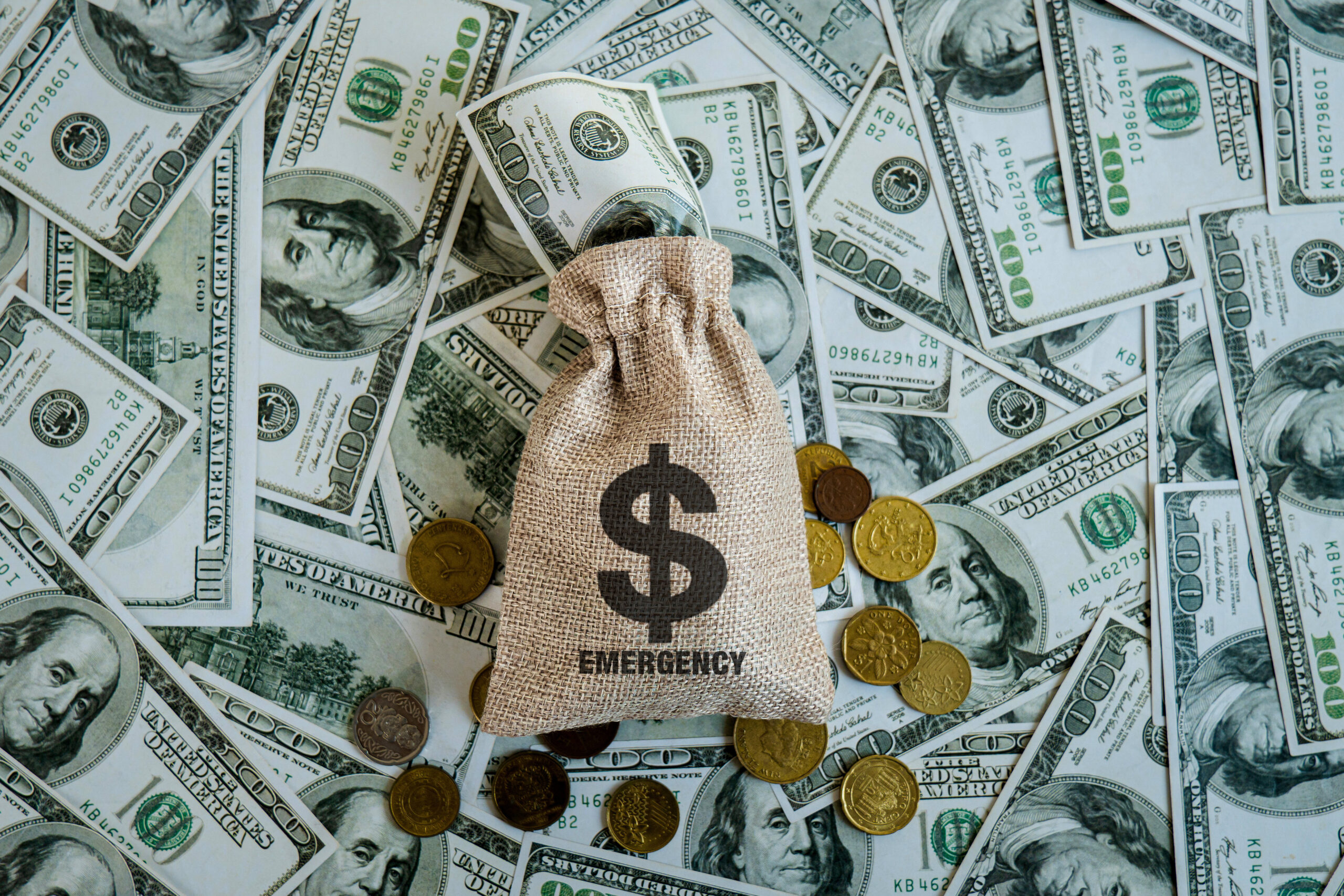A quick funding process that offers emergency business loans to business owners.

Last Updated on March 24, 2025
Shield Funding TeamNo matter how perfect your business plan, no matter how much you try to anticipate problems, your business might run into an emergency. The water heater breaks and floods the stock room, ruining inventory meant to ship out the next day. A huge thunderstorm could damage your roof, forcing you to close your restaurant during repairs. But, even though you have no revenues coming in, creditors are demanding payment.
Disaster and business insurance will cover some of these emergencies, but you might not receive the funds in time to save your business. Or, you could have an immediate deductible that you cannot afford. Exclusion clauses on an insurance policy could prevent you from cashing in.
If you need emergency business loans, you need it in a hurry and Shield Funding can help. We offer emergency business loans for those unexpected events that require immediate action. The process is fast and easy and it takes just a couple of minutes.

What Do I Need to Qualify?
Below is a list of the general requirements to get approved for business funding with our basic program.

How Do I Apply?
Applying has never been easier. You can either call our toll free number 24 hours 7 days a week at:
OR
This is a short term small business loan that you can use for any type of expense. You can use it to cover seasonal swings in business, pay a new chef, or open an entirely new location. Whatever you need for your business, these simple term business loans will help you get it.
We offer up to $1,000,000 in funds for restaurant owners. And with interest rates of 5–45%, you can get a better deal than you would with some traditional lenders. As long as you’ve been in business for two months, earn $8,000 or more per month, and have a credit score of 500 or more, you can qualify for one of these loans.
Our terms range from 12–36 months, so you can get the amount and terms that work for you.
Traditional lenders often require collateral when they give you a loan, which means you’re putting your business on the line. That’s not a good way to start a financial relationship.
We offer unsecured business loans, so you don’t need to put up any collateral. Because we’re an alternative lender, we’re able to offer this funding service alongside our already great rates. You can feel more comfortable with our business loans knowing that we aren’t about to take your oven or your bar stools if you miss a payment.
We know that businesses have a tough time receiving working capital. If you try to get a loan from a traditional lender, you’ll get denied fast. We don’t think any factor should disqualify you from getting funding for your business. At Shield Funding we can approve and fund your loan within 24 hours.
So we offer short term merchant cash advances of up to $1,000,000 to business owners with credit scores above 500. You’ll pay 12–45% interest on terms up to 36 months. As long as your business has been open for a few months and you have $8,000 in monthly revenue, you can qualify and even receive funds the same day.
Businesses have a lot of day-to-day expenses, and that’s what working capital funding is for. Whether it’s covering payroll, stocking your inventory, or taking advantage of a marketing or advertising opportunity, these loans help you with the more mundane expenses of running a business.
Like our term loans, you can get up to $1,000,000 in working capital. You still get the option of terms between 12 and 36 months and interest rates from 9–45%. You’ll need to have two months in business, and at least $10,000 in monthly revenue to qualify. You’ll also need a credit score of 650 or better.
If you meet these qualifications, you can get the funding you need to cover any expense you might come across, from an emergency repair to making sure your stock is full of inventory.
Apply for Emergency Business Loans!
Work with a direct lender and get an emergency business loan as fast as the same day. Shield Funding offers competitive rates and terms on all it’s funding programs. Apply now with a trusted lender that has been helping business owners secure working capital for two decades.
The Merchants Fund offers Emergency Grants of up to $20,000 to small businesses in Philadelphia facing hardships due to events like fires, natural disasters, severe vandalism, utility failures, or significant public works disruptions. Eligible businesses must be independently owned and operated, have a physical location (including food trucks and kiosks), comply with all tax obligations, possess necessary licenses and permits, and demonstrate financial need. Annual revenue should not exceed $1.5 million, with priority given to those under $500,000. Certain businesses, such as professional services and nonprofits, are ineligible.
The Small Business Advantage Grant Program for 2024–2025 provides Pennsylvania-based small businesses with reimbursement grants to adopt energy-efficient processes, pollution prevention methods, or natural resource protection projects. Eligible businesses must be for-profit, based in Pennsylvania, and have 100 or fewer employees worldwide. Grants range from 50% ($7,500) to 80% ($12,000) of project costs, depending on environmental impact and location. The application process requires identifying an eligible project, obtaining detailed cost estimates, and meeting specific eligibility criteria. Applications are accepted starting September 20, 2024, on a first-come, first-served basis until funds are exhausted.
An emergency business loan is one that can be quickly approved and disburse funds in a short amount of time. When a lender gives you capital, they make their profit on the fees and interest they charge. They also protect themselves from risk by charging higher interest rates or requiring interest to be paid up front.
Because a lender giving you an emergency business loan does not have a lot of time to verify your financials and repayment ability, you can expect the following if you take out an emergency business loan;
Your cost of capital will be higher than a traditional, fixed-rate business loan, but within the types of emergency business loans you’ll find a wide spread of rates.
Emergency business loans provide fast and flexible funding when your business faces unexpected challenges or time-sensitive opportunities. Whether you’re dealing with a sudden equipment breakdown, urgent payroll needs, or an unexpected repair, emergency funding gives you access to capital when you need it most. These loans can also help when customer payments are delayed or cash flow suddenly dips, allowing you to keep operations running without disruption.
In addition to covering emergencies, these loans can also be used to seize quick-turn opportunities, like purchasing discounted inventory or jumping into a last-minute marketing campaign. With same-day or next-day funding options, emergency business loans give you the speed and flexibility to handle the unexpected and keep your business on track.
Before committing to an emergency business loan, it’s essential to review your cash flow and repayment capacity. Emergencies can create pressure to act quickly, but taking a moment to assess your monthly income, expenses, and profit margins will help you understand what you can realistically afford. These loans are built for speed, so they often come with higher costs or shorter repayment terms, making it important to factor in the total repayment amount and any fees. While emergency funding can be a lifeline in a crisis, borrowing more than you can handle may lead to financial stress. Be sure the loan’s repayment structure fits your budget and won’t interfere with your daily business operations.
Before getting an emergency business loan, it’s important to have a clear plan for how the funds will be used. These loans are meant to help with urgent situations, such as covering unexpected expenses, emergency repairs, late payroll, or temporary cash flow gaps. They’re also useful for taking advantage of last-minute opportunities that require fast action, like securing discounted inventory or quickly ramping up operations. By knowing exactly what the funding is for, you can borrow the right amount, choose repayment terms that fit your situation, and avoid unnecessary debt. Having a focused plan ensures the loan helps you respond quickly to challenges while keeping your business stable and moving forward.
Our emergency business loans are a smart solution when your business needs quick access to capital to handle unexpected expenses or urgent situations. These loans offer fast approval and funding, often within the same day, and come with competitive rates and terms for short-term borrowing. A fair credit score—typically around 650 or above—is usually required, but if your credit is lower, our business cash advance options may be a better fit.
Emergency loans are ideal when you can’t wait for traditional financing, but it’s important to consider the short repayment periods, which often mean higher payment amounts. You should also assess the total cost of the loan and whether it will help solve your immediate need without putting extra strain on your finances. Carefully reviewing your situation will help you decide if emergency funding is the right move for your business.
Several factors determine whether you qualify for an emergency business loan, and while your credit history is reviewed, it’s often less important than with traditional financing. Lenders typically focus on your business’s current performance, including how long you’ve been operating, your monthly cash flow, recent banking activity, and overall financial health. They may also consider your industry type, any seasonal fluctuations, and how consistently you’ve been able to meet financial obligations. Because emergency loans are meant to provide fast funding, lenders make decisions based on a clear snapshot of your business’s short-term stability, allowing for quick approvals when time matters most.
The amount you can qualify for with an emergency business loan largely depends on your monthly revenue and business bank deposits. Lenders typically approve up to 70% or more of your average monthly deposits, meaning if your business deposits $50,000 per month, you could be eligible for around $35,000 or more in emergency funding. To determine your loan amount, lenders will review your cash flow, deposit consistency, and overall financial stability. Businesses with a strong and steady financial history are more likely to qualify for larger loan amounts and faster approvals, making it easier to access the capital needed during urgent situations.
With an emergency business loan, repayment typically starts soon after the funds are deposited and is made through daily or weekly automatic withdrawals from your business bank account. If you’re set up with a daily repayment plan, payments are usually deducted on a five-day business week, excluding weekends and holidays. Weekly repayment plans involve one scheduled withdrawal per week for a fixed amount. This repayment setup helps break the total loan into smaller, more manageable portions, making it easier to maintain steady cash flow. It’s a simple and predictable way for business owners to stay on top of their loan without disrupting daily operations.
The cost of an emergency business loan is determined by the factor rate and the length of the repayment term. For instance, if you receive $20,000 with a 12-month term and a factor rate of 1.15, you would repay a total of $23,000, which includes $3,000 in financing costs. Unlike traditional interest, the factor rate is a fixed cost applied at the beginning of the loan, so you know the full repayment amount upfront. Depending on your agreement, payments may be made daily or weekly, spreading the repayment over time in smaller, manageable amounts. This structure allows you to quickly access the funds you need while maintaining a clear and predictable repayment plan.
This is likely one of the most important benchmarks you will use to compare lending options. If one lender offers a better interest rate than the other and all other things remain the same you can have a good idea of the rate comparison. You must keep in mind that different products such as credit cards or car loans work using traditional financing interest rates and APR, but many alternative funding programs quote in a factor rate or annualized interest rates so try to compare options based on the types of loans they are most similar to. And ultimately it will come down to what you have to pay back when all is said and done
When comparing lending options, whether quoted in factor rates, interest rates, or any other framework, what is most important is what you will pay back when all is said and done. For this reason you should always try to look at what you will pay over the entire life of the loan.
While it can be challenging, some lenders offer emergency loans to startups with strong personal credit, a solid business plan, and proof of potential revenue. SBA disaster loans are also available to eligible new businesses in federally declared disaster areas.
Funding timelines vary, but many lenders offer same-day or next-day funding for emergency loans, depending on the loan type and the completeness of your application. SBA disaster loans typically take longer, ranging from a few days to several weeks.
It depends on the lender and the loan type. Many short-term emergency loans and merchant cash advances are unsecured, requiring no collateral. However, SBA disaster loans and larger emergency loans may require business or personal assets as collateral.
Most lenders require basic financial documents such as recent bank statements, tax returns, proof of revenue, and identification. Some lenders may also request a business plan or details about the emergency situation to assess your need for funding.
While many emergency loans are flexible, their use often depends on the lender and loan type. Common uses include covering payroll, purchasing inventory, repairing equipment, or addressing disaster-related damages. Some loans, like SBA disaster loans, have specific restrictions, such as prohibiting refinancing long-term debt.
Industries with steady cash flow, such as retail, food service, or healthcare, often have an easier time qualifying. However, businesses in higher-risk industries, like construction or startups, may need to demonstrate stronger financial health or provide additional guarantees.
Some emergency loans include prepayment penalties if you pay off the loan early. This is more common with short-term loans or loans with fixed repayment schedules. Be sure to check the loan terms to avoid unexpected fees.





